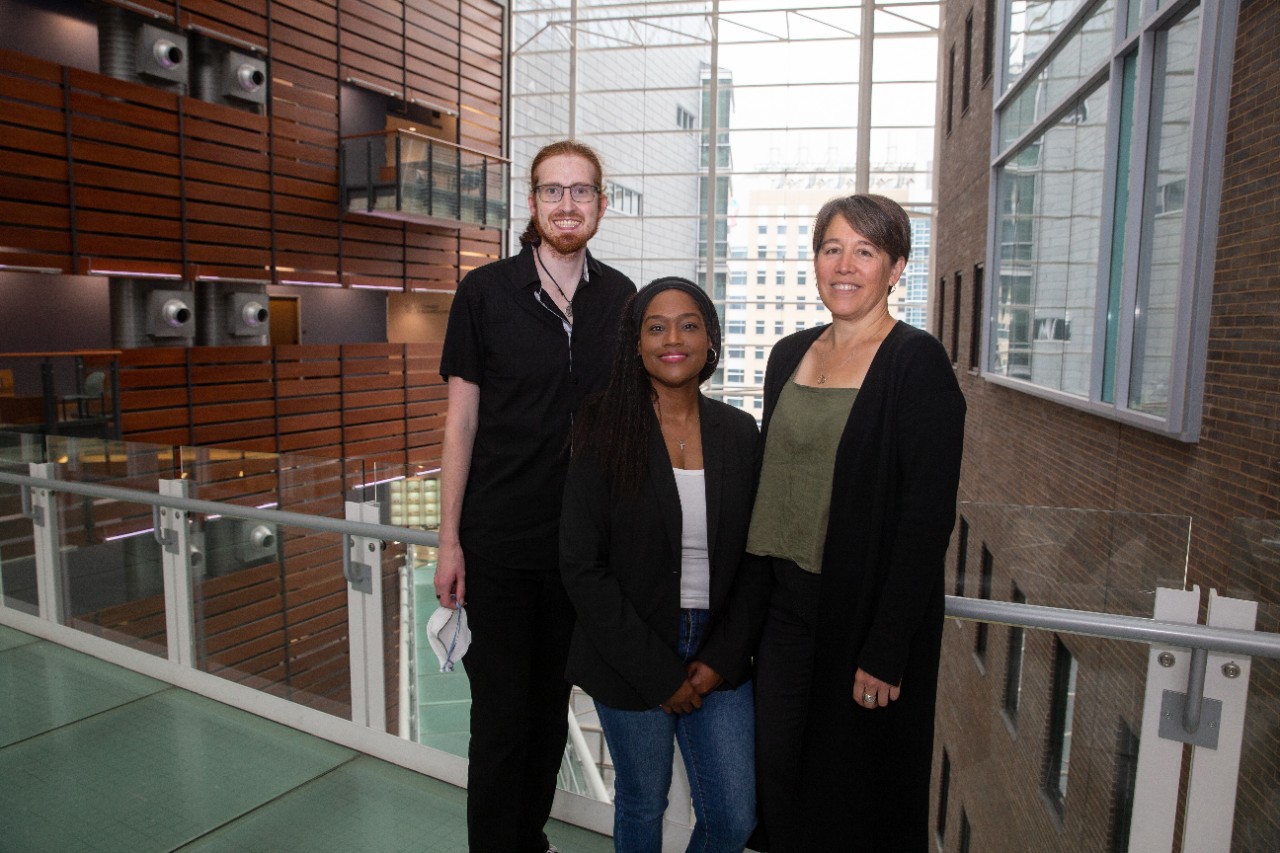
Littleton Independent: Littleton’s Timothy White researches cognitive deficits he lives with
Visiting scholar describes his experience with a summer research program at UC
Timothy White, a visiting scholar from the Denver, CO, area, spent part of his summer in the RISE UP research program at the UC College of Medicine. The Littleton Independent, a community newspaper in the Denver area, published a story about his experience at UC researching chemotherapy-induced cognitive deficits.
In addition to his passion for neuroscience, he brings a unique personal experience to the lab: almost a decade ago at the age of 18, he was diagnosed with the type of cancer — acute lymphoblastic leukemia — he is researching, and he continues to live with cognitive deficits associated with several years of chemotherapy.
“Chemotherapy-induced cognitive impairment, or the mechanisms of cognitive deficits associated with any cancer, it’s very under researched,” White told the publication.
White has been a student of science for several years now, having earned an associate’s degree in psychology from Arapahoe Community College before starting at CU Denver, where he is now working toward a bachelor’s of psychology. It wasn’t until last fall when he decided “on a whim” to pursue neuroscience studies at a convention in San Diego.
“I noticed there was a presentation being done on an ALL leukemia animal model, and I was like ‘oh, that’s super cool,’” White said.
Although he had to catch a flight back home before the presentation, he arranged to meet for coffee with the speaker, Teresa Reyes, PhD, from the University of Cincinnati College of Medicine Department of Pharmacology and Systems Physiology, to talk about her research.
After the conference, he knew he wanted to study chemotherapy-induced cognitive deficits in graduate school, and he started looking into applications. He stumbled upon a webpage for UC's RISE UP program for neuroscience, headed by Reyes. With only hours before the application window closed, White gathered last-minute letters of recommendation and applied.
Now, at the close of his summer research position, he feels the lab has made real progress, not only in their internal studies, but in the field at large. By taking previous research methods a step further and inducing both sexes of animal models with leukemia before treating with chemotherapy, White told the Littleton Independent that the lab in Cincinnati is providing a more accurate and practical look at chemotherapy-induced cognitive deficits.
“They’re already trying out new diets to try and create a preventative buffer,” White said. “This isn’t just ‘yes, we want to understand what’s happening in the brain.’ They are already using this model to try and find preventative measures and create some kind of extra leg-up on preventing cognitive deficits following treatment.”
Next Lives Here
The University of Cincinnati is classified as a Research 1 institution by the Carnegie Commission and is ranked in the National Science Foundation's Top-35 public research universities. UC's graduate students and faculty investigate problems and innovate solutions with real-world impact. Next Lives Here.
Related Stories
Littleton Independent: Littleton’s Timothy White researches cognitive deficits he lives with
August 8, 2023
Timothy White, a visiting scholar from the Denver, CO, area, spent part of his summer in the RISE UP research program at the UC College of Medicine. The Littleton Independent, a community newspaper in the Denver area, published a story about his experience at UC.
Student scholar follows personal research dream at UC
July 25, 2023
Timothy White, who was diagnosed with acute lymphoblastic leukemia nine years ago, is taking part in a 10-week summer program in the College of Medicine called RISE UP. He is researching the type of cancer he had.
Phenols, found in many products, could upset heart's rhythms
October 7, 2024
Chemicals called environmental phenols include food preservatives, plastics ingredients such as BPA and the parabens in shampoos, so they are ubiquitous in everyday life. Now, University of Cincinnati research suggests that higher exposure to phenols might trigger changes in the heart's electrical system and rhythms.
